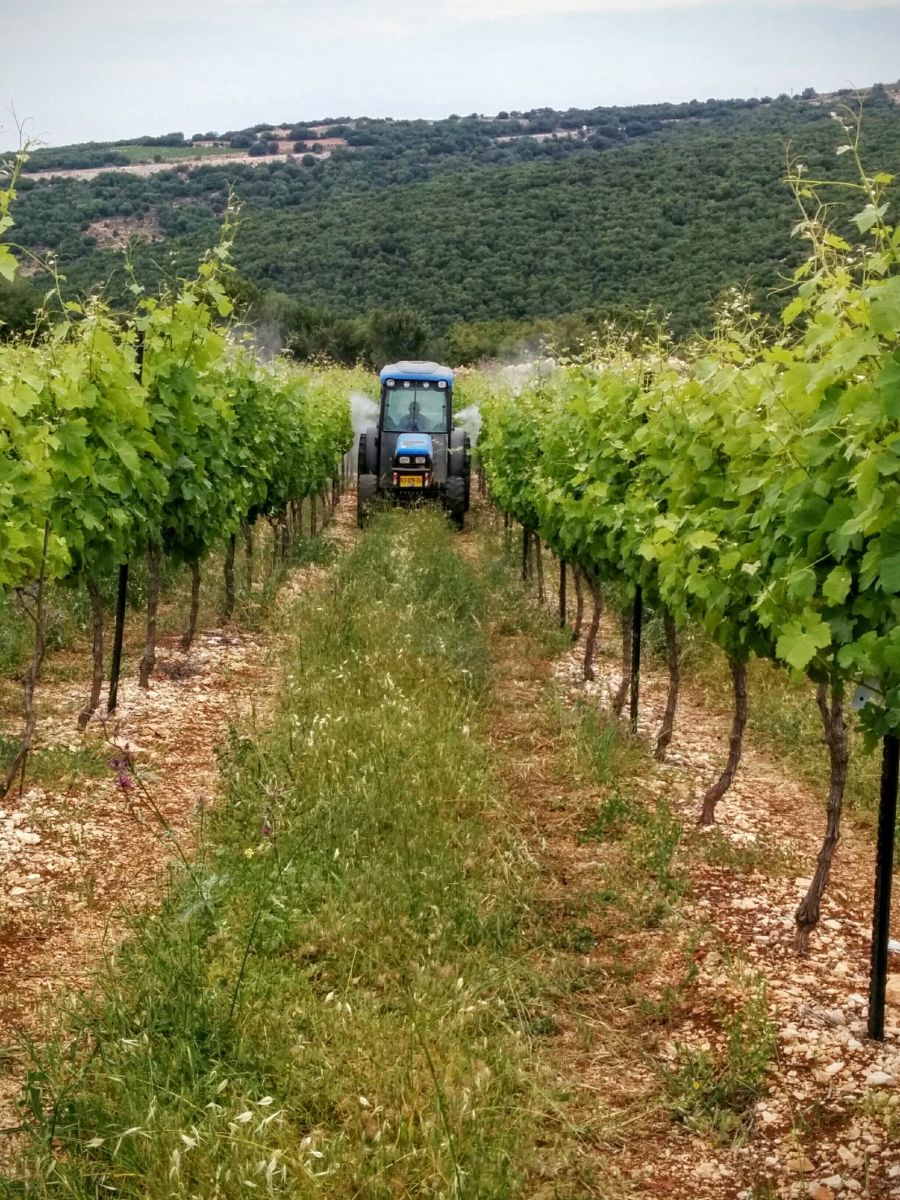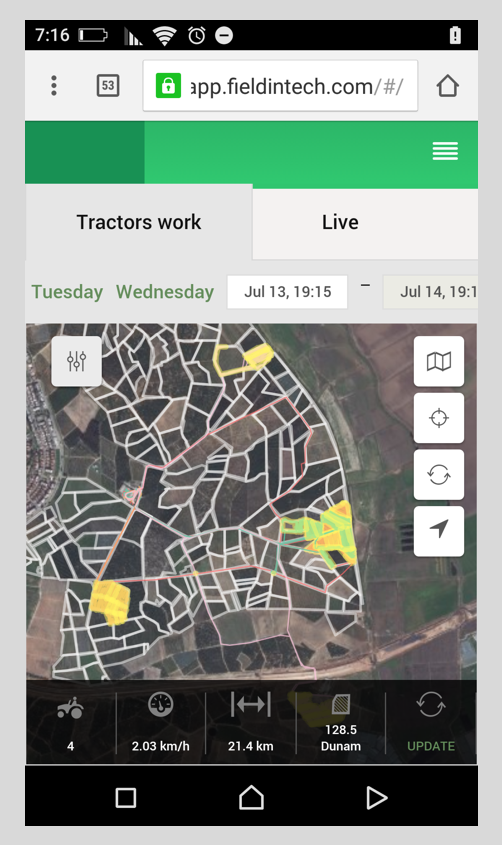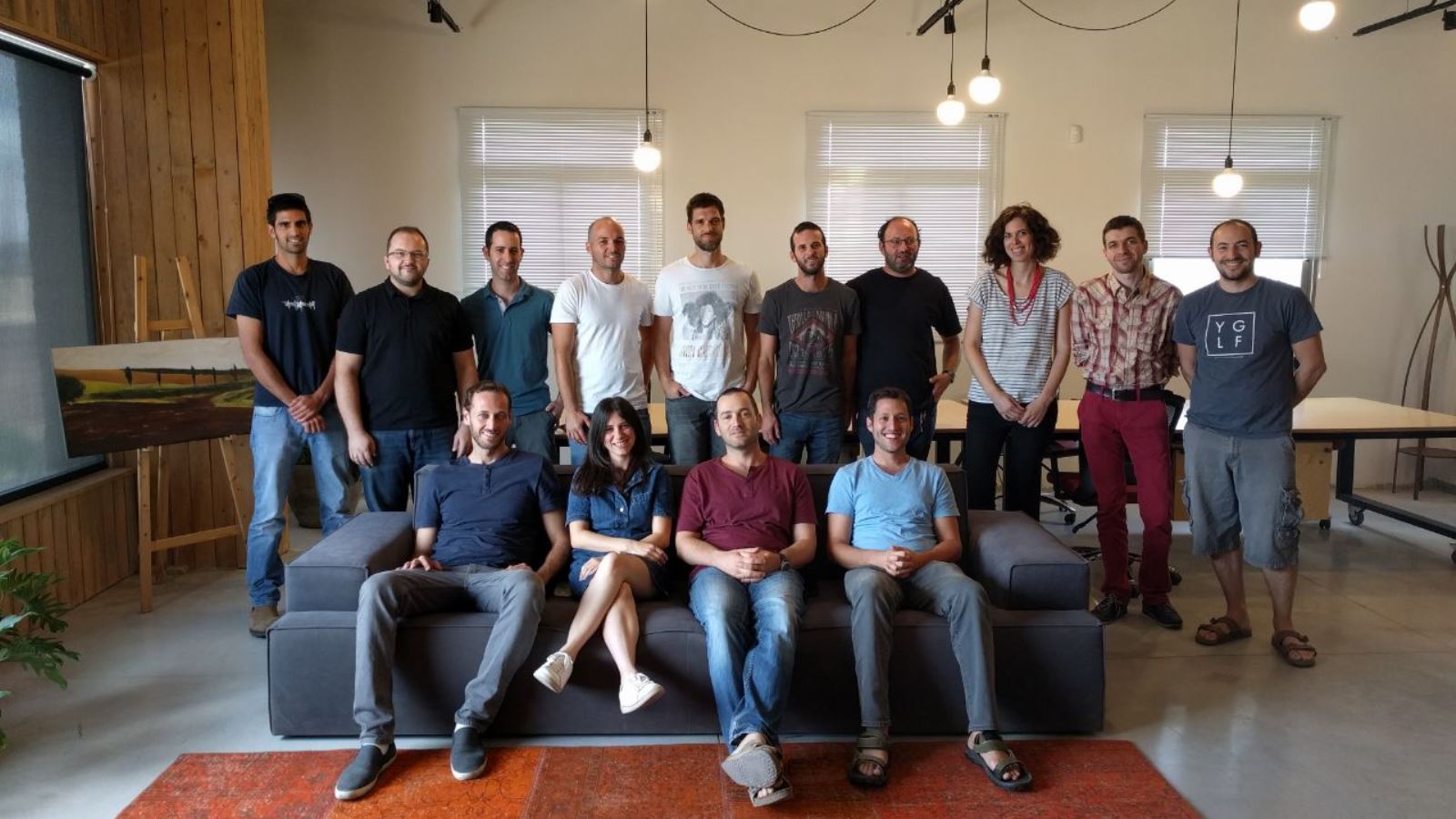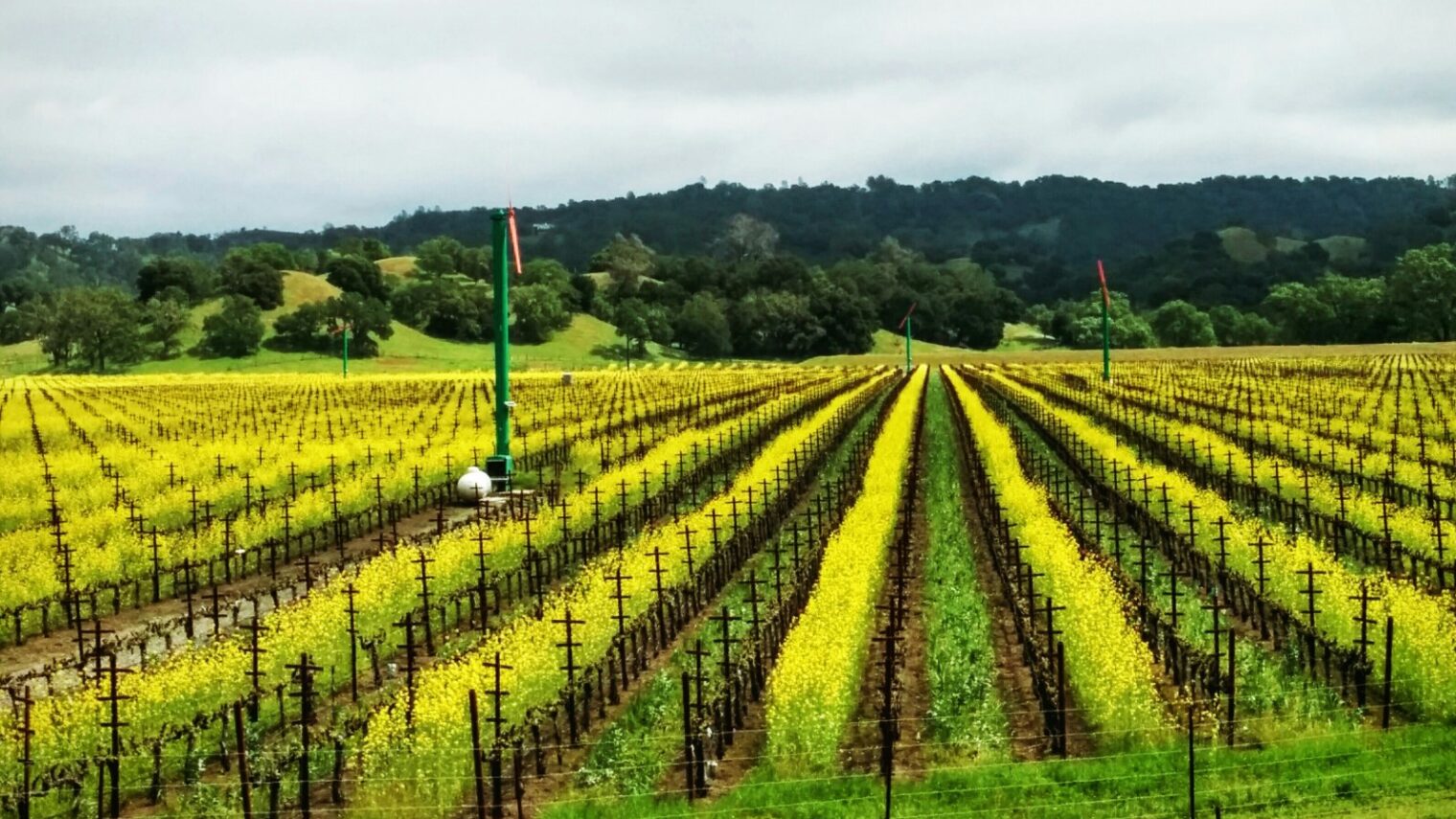When you bite into a juicy fruit, you don’t want either insects or pesticides in that delicious mouthful.
Controlling pests with minimal spraying is a difficult balancing act for commercial growers. And surprisingly, they don’t have a reliable mechanism to assure that the right quantity reaches every tree or vine; some may be missed or over-sprayed.
Israeli ag-tech startup FieldIn innovated an end-to-end pest-management software to achieve that balance with input from innovative tractor hardware and a host of agronomic data.
In addition to all major grower organizations in Israel, FieldIn technology is now used by one of Italy’s largest wineries and by prominent nut and wine producers in California. The product is designed for “specialty” crops including almonds, citrus, wine grapes, apples, avocados and pomegranates.
FieldIn took second place in the AgriVest 2016 Best Companies competition held at the international AgriVest expo last September in Rehovot. Last June, FieldIn won the audience favorite award at TechCrunch’s first Meetup and Pitch-off in Tel Aviv.
Vice President for Business Development Eyal Amit, a Tufts University graduate, tells ISRAEL21c that FieldIn’s product saves growers money, reduces the number of sprays and overall use of pesticides, and eliminates spraying mistakes.

“A large percentage of our customers either spray too much or too little, or miss rows, or spray under unfavorable weather conditions, but they don’t realize it,” Amit says. “Every year $14 billion is spent on pesticides for specialty crops, and pest management accounts for 15 to 20 percent of total seasonal expenditures, but it’s like a black hole because they’re operating blind. FieldIn serves as their eyes.”
FieldIn provides an app to help field scouts monitor ground conditions and weather parameters; a decision-making module for the pest-control adviser; and a hardware component to let growers and tractor operators know where and when the sprayers sprayed and at what velocity and volume.
“We grade every spray for efficiency and if something went wrong, you’ll know about it,” says Amit.

The system sends reports to farm executives and growers that help them identify areas needing attention and comply with regulations on reporting pesticide use.
“In specialty crops you can’t afford to make mistakes in pest management because you see the results of your mistakes only at the packing house after investing in the produce. About 20% on average of some crops will not be packed and will be sold at a loss price or not sold at all, and we believe the main reason for that is inefficient spray operations.”
Partnered with Carmel Winery
The company was founded in 2013 by people with an agricultural and entrepreneurial background.
Cofounder Boaz Bachar, an alumnus of the Zell Entrepreneurship Program at IDC Herzliya, is married to the daughter of an avocado grower who had acquired farm-management software but wasn’t sure what to do with all the output.
Bachar had some ideas about developing a user-friendly alternative and recruited a second cofounder, Iftach Birger, whose family has been growing olives, almonds and wine grapes for generations. Birger grew up on the farm and studied agronomy at Hebrew University.
They spent two years developing the product before bringing along Tal Weksler (VP- R&D), whom Amit describes as “a coding wizard.”
“We were fortunate early on to work with Carmel Winery as our design partner,” says Amit. “They gave us access to their entire viticulture staff to understand things on a practical level. Their input has made our sales discovery phase much shorter. When we go to a customer, our sensors and software can demonstrate mistakes and work inefficiencies in only two or three days.”

Founded in Yokneam Illit as partners in TerraLabs, a division of Terra Venture Partners, FieldIn started commercial sales in 2016 and now has a team of 16 at a coworking space in Ramat Yishai in the Jezreel Valley. The company is in the midst of a Series A financing round and has developed partnerships with several key industry stakeholders, according to Amit.
For more information, click here.

















